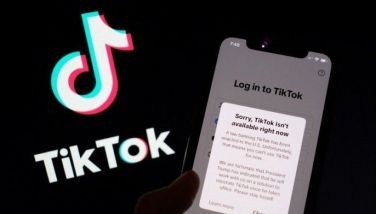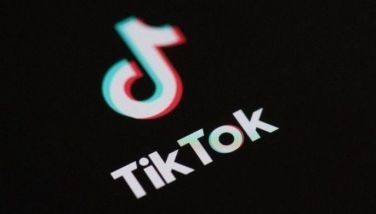Local SMEs still spend mostly on hardware
August 1, 2005 | 12:00am
Accelerated efforts by enterprise software giants to sell to Philippine small and medium enterprises (SMEs) may have given them encouraging results, but the latest study of IDC reveals that a big chunk of SMEs’ IT budgets still goes to hardware acquisition.
At present, old-time enterprise software leaders Oracle and SAP are intensely vying for a share of SME spoils to ensure their continued success and profitability given a slower growth in the high-end segment of the market. In an intense duel over SME customers, Oracle and SAP now both claim leadership in the mid-market and are keen on sharing their customer lists.
But IDC’s latest research entitled Philippine SME IT 2005: Usage and Preferences Survey, notes that PCs and other hardware and not business software systems get the biggest slice of SMEs’ IT budgets. Based on the report, only 27 percent of SMEs’ IT budgets are allotted for software, while 38.3 percent are set aside for hardware.
Philippine SMEs spend on IT this way primarily because they still have a huge requirement to build robust IT infrastructure in order to run strategic solutions that would help them improve their business processes, the study says.
IDC’s research, which provides an analysis of and insights into the buying behavior of SMEs in relation to IT products and services, believes the same IT buying trend among local SMEs will continue this year and perhaps even in the years to come.
The report, which also shows quantifiable opportunities that can be addressed by ICT vendors and service providers, also notes that SMEs are particular on desired features and capabilities that are made more attractive through warranty services and competitive pricing.
"Vendors should focus on delivering products and services that are SME-centric, while also arming their offerings with efficient after-sales support and competitive pricing, in order to capture the vast opportunities from the SME sector. Long-term branding strategy, as well as usage of various channels, will also be of major significance," says Jubert Daniel Alberto, senior analyst of IDC Philippines.
But even at 27 percent of their total IT budgets, SMEs still provide software vendors something big enough in dollar terms for them to survive in.
Based on the IDC study, Philippine SMEs’ adoption of software solutions remains largely focused on security, storage, systems management and enterprise resource management (ERM), since these are basic solutions that organizations incorporate into their operations.
In a two-day technology summit last week, SAP launched the SAP BusinessOne specifically for SMEs looking for a single system to automate their varied processes in a way that can provide an up-to-the-minute picture of their business.
With this new SME solution, Krishnendu Datta, SAP Philippine country manager, declares that their focus this year will be the small- and mid-sized markets.
"The mid-sized business market is a significant segment for SAP, contributing more than 50 percent of total software revenue in the Asia-Pacific," notes Datta.
To back up this claim, he says SAP just closed 600 SME deals in the region, 300 of which were during the first half of the current quarter and the other 300 during the last quarter. Compared to SAP’s 2004 performance, it’s a 193 percent increase in terms of uptake of SMEs alone, he adds.
Regional market figures released by SAP show the company achieving for the first six months of 2005 a 38 percent software revenue growth compared to the same period in 2004.
SAP executives say that based on company data and financial analysts’ estimates, during the first quarter of 2005, SAP got a market share of 73 percent, which also redounds to over two percent per quarter gain against its peer group. Datta says these figures are "very similar in the Philippines, or even more."
The same market data and estimates show Oracle and PeopleSoft having only 18 percent market share, Microsoft with five percent and Sebel with four percent.
In the Philippines, SAP has installations encompassing small-sized businesses (15 to 20 percent), large corporations (30 to 40 percent), and medium-sized companies, says Datta.
Oracle’s numbers, on the other hand, paint a different market scenario. Over the last two years, Oracle has bent itself to the task of getting more SME clients which now represent approximately 40 percent of its customers in the region. In the Philippines, the local office is proud to have about a dozen mid-market customers to date.
In an e-mailed statement to IT journalists, Oracle claims having outperformed its competition in the Asia-Pacific by delivering new applications’ license revenue growth of 80 percent in the fourth quarter of fiscal year 2005 compared to the same period the previous year. The statement notes that the figure represents more than three times SAP’s recent reported second quarter growth of 23 percent in the Asia-Pacific and that for the full fiscal year of 2005 (ending May 31, 2005), Oracle’s new applications’ license revenues in the Asia-Pacific grew by 46 percent.
In another e-mailed statement, Yashi Kant, Oracle Philippines managing director, said Oracle is now the leading applications vendor for the mid-market in the country because its offerings address the key elements – competitive pricing starting at P2 million for a 10-user license with hardware, product that is made and not "scaled down" for SMEs, and partner support – that appeal to SMEs. Oracle’s flagship SME offering is the Oracle E-Business Suite Special Edition (EBS SE).
Oracle and SAP are evidently not just fighting over untapped SME markets but are ready to poach from each other’s existing customer base. The presence of SAP’s Safe Passage Program and Oracle Fusion for SAP or "Off SAP" prove how both companies won’t stop at anything to win market share.
Earlier this year, SAP launched the SAP Safe Passage Program for companies using competing solutions and wanting to switch to SAP. In the past six months, SAP Asia-Pacific claims that over 20 customers have availed themselves of the program and that globally 21 PeopleSoft, J.D. Edwards (JDE) or Retek customers have done the same. Datta says one of these companies is local pharmaceutical company United Laboratories, which migrated from its existing software platform to mySAP ERP.
"These customers are switching to SAP as they believe Oracle won’t take PeopleSoft or JDE in their core products, even by 2008, as Oracle promised," adds Datta.
Oracle responded by announcing last month the Off SAP program that offers SAP R/3 customers, who are faced with having to re-license and re-implement their applications in order to upgrade to mySAP ERP or mySAP Business Suite, an alternative to move to Oracle E-Business Suite.
The California-based Oracle claims victory over its German rival as Off SAP apparently managed to have quite a number of respondents, 31 percent of them from the Asia-Pacific.
Under the Off SAP program, Oracle offers SAP R/3 customers up to 100 percent license credit, to switch from SAP to Oracle applications. Additionally, Oracle Consulting offers free SAP Migration Insight to give customers a clear understanding of the migration process and its benefits. Oracle Financing offers a two-year payment plan for the application license and support fees, with no interest and no payments for six months, followed by six installments.
So far, SAP has responded by announcing a few weeks ago that its fully owned subsidiary, TomorrowNow, will set up a regional office in Singapore to offer PeopleSoft and JDE customers the opportunity to cut their software maintenance costs by as much as 50 percent.
At present, old-time enterprise software leaders Oracle and SAP are intensely vying for a share of SME spoils to ensure their continued success and profitability given a slower growth in the high-end segment of the market. In an intense duel over SME customers, Oracle and SAP now both claim leadership in the mid-market and are keen on sharing their customer lists.
But IDC’s latest research entitled Philippine SME IT 2005: Usage and Preferences Survey, notes that PCs and other hardware and not business software systems get the biggest slice of SMEs’ IT budgets. Based on the report, only 27 percent of SMEs’ IT budgets are allotted for software, while 38.3 percent are set aside for hardware.
Philippine SMEs spend on IT this way primarily because they still have a huge requirement to build robust IT infrastructure in order to run strategic solutions that would help them improve their business processes, the study says.
IDC’s research, which provides an analysis of and insights into the buying behavior of SMEs in relation to IT products and services, believes the same IT buying trend among local SMEs will continue this year and perhaps even in the years to come.
The report, which also shows quantifiable opportunities that can be addressed by ICT vendors and service providers, also notes that SMEs are particular on desired features and capabilities that are made more attractive through warranty services and competitive pricing.
"Vendors should focus on delivering products and services that are SME-centric, while also arming their offerings with efficient after-sales support and competitive pricing, in order to capture the vast opportunities from the SME sector. Long-term branding strategy, as well as usage of various channels, will also be of major significance," says Jubert Daniel Alberto, senior analyst of IDC Philippines.
Based on the IDC study, Philippine SMEs’ adoption of software solutions remains largely focused on security, storage, systems management and enterprise resource management (ERM), since these are basic solutions that organizations incorporate into their operations.
In a two-day technology summit last week, SAP launched the SAP BusinessOne specifically for SMEs looking for a single system to automate their varied processes in a way that can provide an up-to-the-minute picture of their business.
With this new SME solution, Krishnendu Datta, SAP Philippine country manager, declares that their focus this year will be the small- and mid-sized markets.
"The mid-sized business market is a significant segment for SAP, contributing more than 50 percent of total software revenue in the Asia-Pacific," notes Datta.
To back up this claim, he says SAP just closed 600 SME deals in the region, 300 of which were during the first half of the current quarter and the other 300 during the last quarter. Compared to SAP’s 2004 performance, it’s a 193 percent increase in terms of uptake of SMEs alone, he adds.
Regional market figures released by SAP show the company achieving for the first six months of 2005 a 38 percent software revenue growth compared to the same period in 2004.
SAP executives say that based on company data and financial analysts’ estimates, during the first quarter of 2005, SAP got a market share of 73 percent, which also redounds to over two percent per quarter gain against its peer group. Datta says these figures are "very similar in the Philippines, or even more."
The same market data and estimates show Oracle and PeopleSoft having only 18 percent market share, Microsoft with five percent and Sebel with four percent.
In the Philippines, SAP has installations encompassing small-sized businesses (15 to 20 percent), large corporations (30 to 40 percent), and medium-sized companies, says Datta.
Oracle’s numbers, on the other hand, paint a different market scenario. Over the last two years, Oracle has bent itself to the task of getting more SME clients which now represent approximately 40 percent of its customers in the region. In the Philippines, the local office is proud to have about a dozen mid-market customers to date.
In an e-mailed statement to IT journalists, Oracle claims having outperformed its competition in the Asia-Pacific by delivering new applications’ license revenue growth of 80 percent in the fourth quarter of fiscal year 2005 compared to the same period the previous year. The statement notes that the figure represents more than three times SAP’s recent reported second quarter growth of 23 percent in the Asia-Pacific and that for the full fiscal year of 2005 (ending May 31, 2005), Oracle’s new applications’ license revenues in the Asia-Pacific grew by 46 percent.
In another e-mailed statement, Yashi Kant, Oracle Philippines managing director, said Oracle is now the leading applications vendor for the mid-market in the country because its offerings address the key elements – competitive pricing starting at P2 million for a 10-user license with hardware, product that is made and not "scaled down" for SMEs, and partner support – that appeal to SMEs. Oracle’s flagship SME offering is the Oracle E-Business Suite Special Edition (EBS SE).
Earlier this year, SAP launched the SAP Safe Passage Program for companies using competing solutions and wanting to switch to SAP. In the past six months, SAP Asia-Pacific claims that over 20 customers have availed themselves of the program and that globally 21 PeopleSoft, J.D. Edwards (JDE) or Retek customers have done the same. Datta says one of these companies is local pharmaceutical company United Laboratories, which migrated from its existing software platform to mySAP ERP.
"These customers are switching to SAP as they believe Oracle won’t take PeopleSoft or JDE in their core products, even by 2008, as Oracle promised," adds Datta.
Oracle responded by announcing last month the Off SAP program that offers SAP R/3 customers, who are faced with having to re-license and re-implement their applications in order to upgrade to mySAP ERP or mySAP Business Suite, an alternative to move to Oracle E-Business Suite.
The California-based Oracle claims victory over its German rival as Off SAP apparently managed to have quite a number of respondents, 31 percent of them from the Asia-Pacific.
Under the Off SAP program, Oracle offers SAP R/3 customers up to 100 percent license credit, to switch from SAP to Oracle applications. Additionally, Oracle Consulting offers free SAP Migration Insight to give customers a clear understanding of the migration process and its benefits. Oracle Financing offers a two-year payment plan for the application license and support fees, with no interest and no payments for six months, followed by six installments.
So far, SAP has responded by announcing a few weeks ago that its fully owned subsidiary, TomorrowNow, will set up a regional office in Singapore to offer PeopleSoft and JDE customers the opportunity to cut their software maintenance costs by as much as 50 percent.
BrandSpace Articles
<
>
- Latest
Latest
Latest
January 19, 2025 - 12:39pm
By Alex Pigman | January 19, 2025 - 12:39pm
January 19, 2025 - 10:05am
By Alex Pigman | January 19, 2025 - 10:05am
January 6, 2025 - 11:05pm
January 6, 2025 - 11:05pm
December 1, 2024 - 3:59pm
December 1, 2024 - 3:59pm
Recommended































